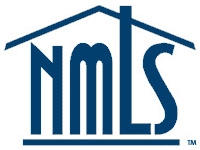What are Non QM Mortgages?
Non-QM (non Qualified Mortgage) mortgages are loan products that do not meet the standard criteria established by the Consumer Financial Protection Bureau (CFPB) for qualified mortgages. These standards are designed to protect borrowers by ensuring that loans are affordable and that lenders have verified the borrower’s ability to repay.
Non-QM mortgages can include a variety of loan types, such as:
- Interest-Only Loans: Borrowers pay only the interest for a certain period, after which they start paying principal and interest.
- Asset-Based Loans: These loans consider the borrower’s assets rather than traditional income verification, which can be useful for self-employed individuals or those with non-traditional income sources.
- Jumbo Loans: These exceed the conforming loan limits and are not eligible for purchase by government-sponsored entities.
- Foreign National Loans: Designed for borrowers who are not U.S. citizens or permanent residents, often requiring different documentation.
- Stated Income or Bank Stetement Loans: Borrowers declare their income without extensive documentation or by using bank statment deposits to qualify for income. Lenders may still require other forms of verification.
- Seasoned Loans: Loans that are not newly originated but have been performing well over time.
Non-QM products can offer flexibility for borrowers who may not fit the traditional mold, but they can also come with higher interest rates and more stringent terms due to the increased risk to lenders. It’s important for borrowers to carefully consider their options and ensure they understand the terms and implications of non-QM loans.
How Can Non QM Mortgages Benefit Me
Non-QM (Qualified Mortgage) mortgages can offer several benefits depending on your financial situation. Here are a few potential advantages:
- Flexible Qualification Criteria: Non-QM loans often have more lenient income verification requirements, which can be helpful if you’re self-employed or have a unique income situation.
- Alternative Documentation: These loans might allow for alternative documentation like bank statements instead of traditional income verification, making it easier to qualify.
- Higher Debt-to-Income Ratios: Non-QM mortgages may permit higher debt-to-income ratios, allowing you to borrow more.
- Variety of Loan Structures: You can find options like interest-only loans or balloon loans that might better fit your cash flow needs.
- Investment Properties: If you’re looking to invest in real estate, non-QM loans can be more accessible for financing rental properties.
- Credit Flexibility: Borrowers with lower credit scores may find it easier to qualify for a non-QM mortgage than a conventional one.
- Creative Financing Options: These loans often cater to unique financial situations, such as those involving foreign income, recent credit events, or non-traditional assets.
It’s important to weigh these benefits against potential drawbacks, like higher interest rates or fees, so consulting with a mortgage professional can help you make an informed decision.
How to I Qualify For Non QM Mortgages
Qualifying for a Non-QM (Qualified Mortgage) can vary based on the lender and the specific loan product, but here are some general steps and criteria to consider:
- Income Documentation:
- Be prepared to provide alternative documentation. This could include bank statements, profit and loss statements, or 1099 forms if you’re self-employed.
- Credit Score:
- While Non-QM loans can be more lenient, a higher credit score (usually 620 or above) will improve your chances and terms.
- Debt-to-Income (DTI) Ratio:
- Non-QM loans may allow higher DTI ratios, but a lower ratio is typically preferable. Be ready to demonstrate how you manage your debts.
- Down Payment:
- A larger down payment can strengthen your application and may be required by some lenders, especially for investment properties.
- Loan Types:
- Research different Non-QM loan products to find one that fits your situation, such as interest-only loans or loans for foreign nationals.
- Lender Requirements:
- Each lender may have unique criteria, so compare options and ask about their specific requirements for Non-QM loans.
- Financial Reserves:
- Some lenders may want to see that you have cash reserves (savings) to cover future mortgage payments in case of financial hardship.
- Asset Verification:
- Be prepared to show other assets that can support your financial profile, which may be considered in lieu of traditional income.
- Consult a Mortgage Professional:
- A mortgage broker or lender specializing in Non-QM loans can provide guidance tailored to your situation.
By preparing your financial documentation and understanding the specific requirements of the lender, you can improve your chances of qualifying for a Non-QM mortgage.














